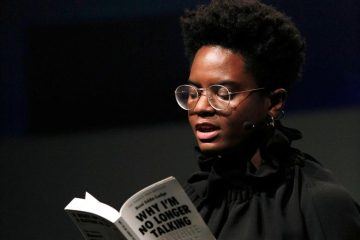Colin Grant at the TLS:
 So why are publishers suddenly bending over backwards to fill their schedules with people of colour? Interviewing a range of writers, publishers and other industry professionals throws up complex and sometimes disturbing answers. It’s certainly not only about capitalizing on a trend. Sharmaine Lovegrove, publisher of the Little, Brown imprint Dialogue Books, tells me that it’s partly the result of an evolving culture of shame and embarrassment: “Agents are asking people who have a little bit of a social media presence to come up quite quickly with ideas that they can sell to publishers who are desperate because no list wants to be all white, as it has been”. With the dread of being associated with the hashtag #publishingsowhite, the simplest and cheapest way of adding black names to their lists is to put out anthologies packed with malleable first-time authors and one or two seasoned writers seeded through the collections. (A – presumably – more expensive way is to recruit Stormzy, who launched the #Merky Books imprint at Penguin Random House last year.)
So why are publishers suddenly bending over backwards to fill their schedules with people of colour? Interviewing a range of writers, publishers and other industry professionals throws up complex and sometimes disturbing answers. It’s certainly not only about capitalizing on a trend. Sharmaine Lovegrove, publisher of the Little, Brown imprint Dialogue Books, tells me that it’s partly the result of an evolving culture of shame and embarrassment: “Agents are asking people who have a little bit of a social media presence to come up quite quickly with ideas that they can sell to publishers who are desperate because no list wants to be all white, as it has been”. With the dread of being associated with the hashtag #publishingsowhite, the simplest and cheapest way of adding black names to their lists is to put out anthologies packed with malleable first-time authors and one or two seasoned writers seeded through the collections. (A – presumably – more expensive way is to recruit Stormzy, who launched the #Merky Books imprint at Penguin Random House last year.)
But social media is not the best school for a grounding in literary technique and critical engagement. There’s an obvious correlation between the constraints of writing on Twitter (with its 280 characters), blogs or Facebook and the bite-sized ambitions of the essays that constitute some recent collections.
more here.
